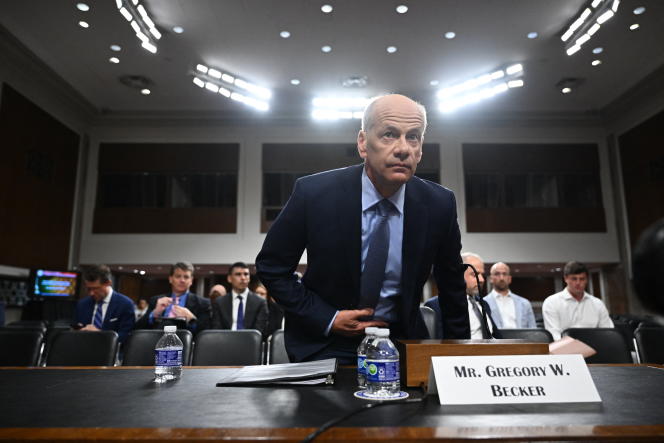His bankruptcy had such repercussions that, since then, his name has been the barometer measuring the severity of financial crises. On September 15, 2008, the collapse of the American bank Lehman Brothers plunged the world economy into unprecedented turmoil since the depression of 1929. The chain reaction it triggered highlighted the fragility of European banks and the flaws of the financial regulation.
Fifteen years later, have these flaws been filled? “In part: the banking system is more robust than then, but there is still a lot to do”summarizes Nicolas Véron, specialist on the subject at the Peterson Institute, an independent think tank in Washington. “Yes, it is more solid, but without the help of central banks and public money, it would be incapable of withstanding a new major crisis”adds Thierry Philipponnat, chief economist of Finance Watch, an NGO seeking to counterbalance the financial industry.
After the storm of 2008, new banking rules, known as “Basel III”, were adopted under the aegis of the Basel Committee, which brings together the world’s major supervisors. These rules require a higher level and quality of capital (or equity) from banks, as well as strengthened management of their liquidity. All so that they are more solid and able to withstand possible losses.
“The banking union is not yet complete”
To avoid national excesses – and in particular the complacency of local financial policemen with the banks under their control – the euro zone built the “banking union” in 2014. This provided member countries with a supervisor and a single resolution mechanism, intended to strengthen supervision and allow better management of failing banks. This is to avoid dipping into taxpayers’ money to help them.
“Europe has strengthened its team, but the banking union is not yet complete,” nevertheless recalls Jézabel Couppey-Soubeyran, economist at the University of Paris-I-Panthéon-Sorbonne. In fact, it still lacks a shared deposit guarantee system, which would prevent its citizens from doubting the guarantee provided by it in the event of a serious crisis in a State.
So much for the main principles. But, amid the twists and turns of technical details, certain regulations have been simplified over the years under the influence of national banking lobbies. “In Europe, the Basel III rules are applied in a watered-down manner, and their implementation timetable runs until 2030”, regrets Mr. Philipponnat. In the United States, after his election in 2016, Donald Trump unraveled part of the financial regulations reinforced by his predecessor, Barack Obama – small and medium-sized banks were partly exempted.
You have 50.77% of this article left to read. The rest is reserved for subscribers.
